
Written by Harold Schechter
Co-Written and Illustrated by Eric Powell
Published by Dark Horse Comics
Back in 1975, when I was 16 years old, I managed to get hold of a copy of Dr. Fredric Wertham’s bestselling 1954 book, Seduction of the Innocent via Inter-Library Loan.
This was the book that nearly killed the comic book industry and certainly led to it being considerably changed.
I had read a couple of articles about the effects of the book and had come to think of the real-life Doctor as a different type of comic book super villain, himself. That seemed to be his prevailing image in fandom.
Over the years, as I matured and was able to look at the bigger picture, my opinion of Dr. Wertham began to evolve.
I came to see him as a good man, a compassionate man, who wanted to prevent the unbelievably unspeakable violence he ran across in the course of his psychiatric work with patients.
In more recent years, professor Carol Tilley meticulously researched Wertham’s anti-crime comics crusade and has proven that, presumably with all best intentions, he settled on his conclusions first, and then manipulated the facts to “prove” them to the public.
In hand today, though, we have the new Dark Horse graphic novel biography, “Dr. Werthless,” by Harold Schechter and Eric Powell. Powell I was familiar with as the immensely talented writer/artist on The Goon, a sort of disreputable Popeye on steroids character who’s been around for years now. Turns out Schechter is a well-known and reputable true-crime author who previously collaborated with Powell on a graphic novel telling the tragic story of serial killer Ed Gein.
Based on the work at hand, the two of them make for a good fit. Despite the book’s less than respectful title, quoted from a MAD piece drawn by Wallace Wood, what we have here is the first, as far as I know, fairly in-depth look at the life and career of a very complicated, complex man.
Dr. Wertham is not a villain here.
In fact, he comes across as a victim, a victim of his own ego, as Dr. Freud might diagnose him. He wants desperately to be accepted by his peers and yet his stubborn insistence that his way is always the right way leads to his never feeling fully accepted or appreciated for his work.
The book actually delves deeply into some of the cases he oversaw, including The Werewolf, Robert Irwin, and the notorious Albert Fish.
Some might feel the book delves way TOO deeply. Detailed accounts of cannibalism and child molestation are at minimum disturbing. After a while, they’re almost too much to handle. It’s important to note, however, that this was the type of thing Wertham calmly put up with on a regular basis from some of his patients.
We also see his compassion in other ways, such as when he set up and worked a low-cost clinic in Harlem, becoming so popular there as to be named “an honorary negro.”
It was his work with children, though, that led to his conclusions that violent juvenile delinquency—a growing problem after World War II—was caused by impressionable kids reading comic books. All of the JDs he spoke with had read comic books, and thus he theorized a pattern. The problem is that he ignored the literal millions of impressionable children who read comics and DIDN’T become real life monsters.
All of this, of course, eventually leads to his crusade, and the writing of Seduction of the Innocent, and all of that, as well as its aftermath, is also detailed here.
Schechter uses many of Wertham’s own words, as well as the actual words of others involved, underscoring the great research that went into this book. It also makes things look a tad overly wordy at times, though.
Powell is dead-on, with his recognizable art of the doctor and others, done in what he writes is meant to be an approximation of magazine illustration of the 1950s. He also utilizes tried-and-true comic book techniques to show movement or the passage of time. In between each of the book’s segments are some lovely cubist abstracts and portraits.
Wertham, of course, was not actually a criminal, and yet Schechter, by virtue of Wertham’s association with killers, feels like the perfect person to write this book. Powell, with his clear love of the comics format in all its variations, is likewise the perfect artist for “Dr. Werthless.”
As comics fans, Dr. Fredric Wertham is in our DNA, and I for one am glad to learn that while he was a deeply flawed man, he was a much better man than I had ever pegged him to be. I can’t help wondering, however, what he, himself, would have thought of a violent comic book story finally earning him some respect.
Booksteve recommends.




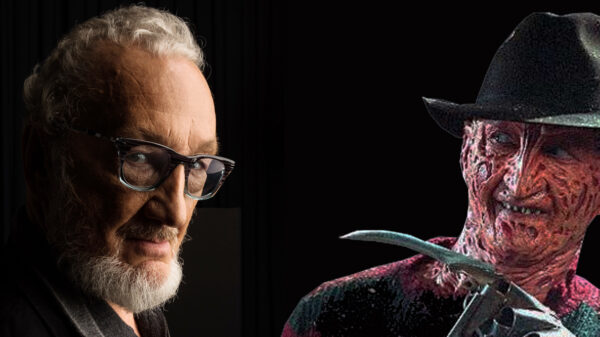

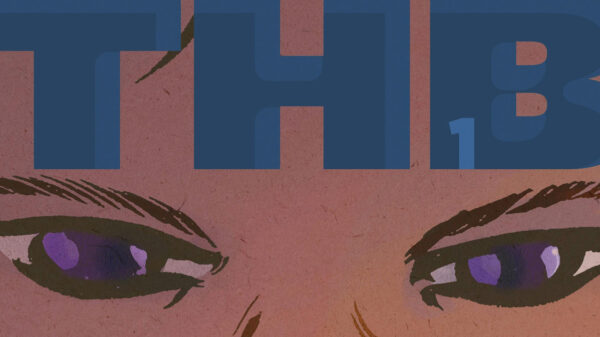





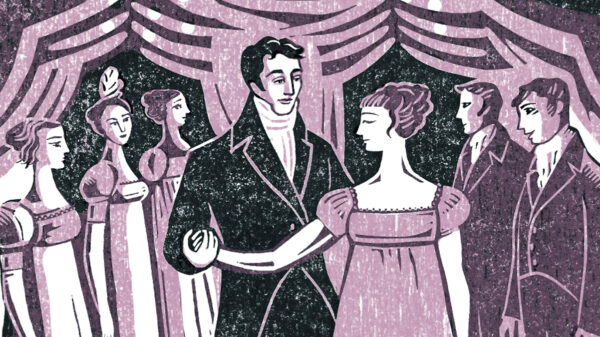
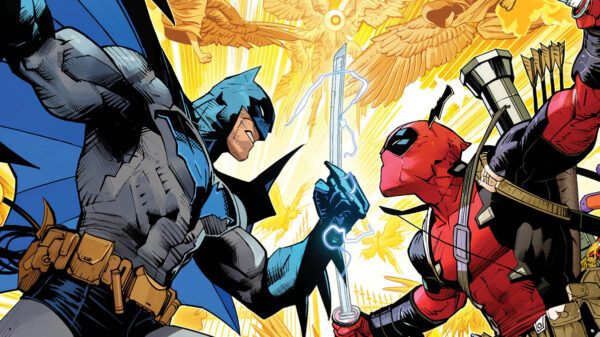







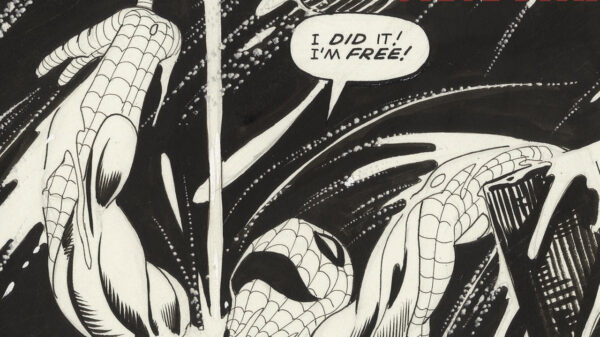





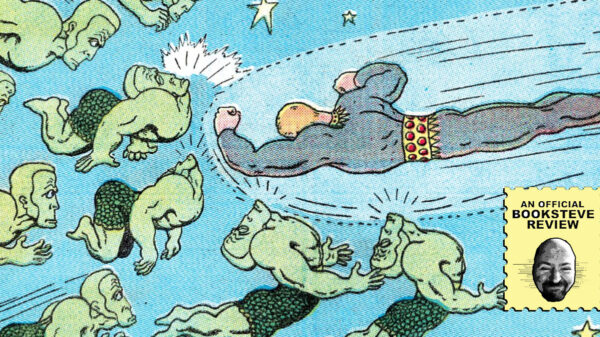
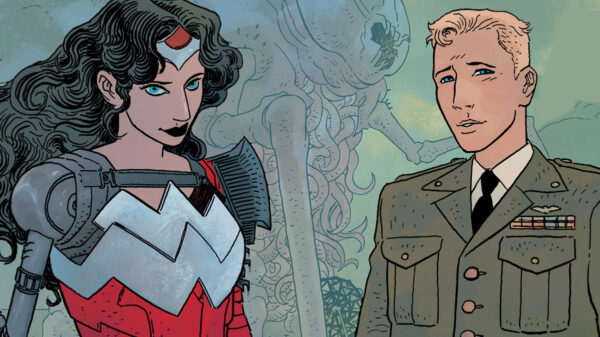











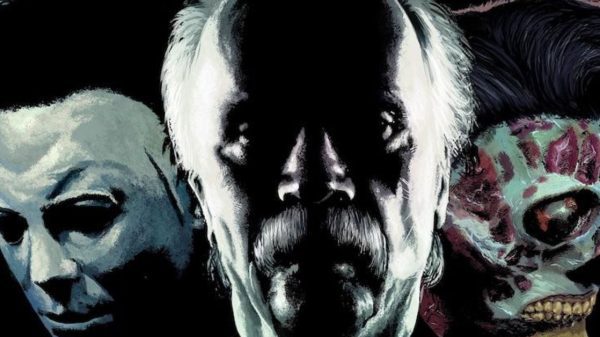
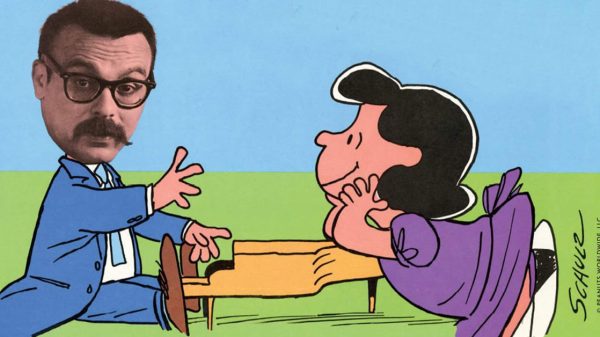









































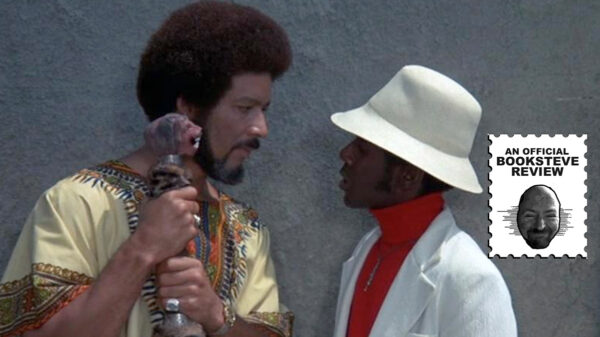















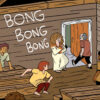

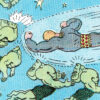

You must be logged in to post a comment Login